#walter seitz
Explore tagged Tumblr posts
Text
Got another job for you, 621. This one's a favor for a friend who's gone missing. His call sign? The Red. You should be able to find him near some wreckage in the target shoreline. If there are hostiles nearby, give him some fire support; he likely lost his gear somewhere along the line. If he asks, tell him the Wallcrusher sends his regards. Good luck 621.
#armored core#armored core 6#ys#i played ys viii and ix before ac6 so the instant i heard patrick seitz as handler walter i was like thats dogi
16 notes
·
View notes
Text

Walter Pidgeon-Joyce Compton "Sky murder" 1940, de George B. Seitz.
5 notes
·
View notes
Text
Cheri Oteri — one of two performers to play Walters as a recurring character on Saturday Night Live — summed up Walters’s strategy in an interview with CNN during its 2022 Times Square coverage: She said she once told Walters, who was a fan of her impersonation, “When you do an interview, you usually give three compliments, and then go in for the kill: ‘You’re a New York Times best-selling author, you’re an accomplished and celebrated concert pianist, and a three-time Academy Award–winning actor. Why the porn?’”
Barbara Walters’s Superpower Was Fairness
0 notes
Text






JSTOR Articles on the History of Witchcraft, Witch Trials, and Folk Magic Beliefs
This is a partial of of articles on these subjects that can be found in the JSTOR archives. This is not exhaustive - this is just the portion I've saved for my own studies (I've read and referenced about a third of them so far) and I encourage readers and researchers to do their own digging. I recommend the articles by Ronald Hutton, Owen Davies, Mary Beth Norton, Malcolm Gaskill, Michael D. Bailey, and Willem de Blecourt as a place to start.
If you don't have personal access to JSTOR, you may be able to access the archive through your local library, university, museum, or historical society.
Full text list of titles below the cut:
'Hatcht up in Villanie and Witchcraft': Historical, Fiction, and Fantastical Recuperations of the Witch Child, by Chloe Buckley
'I Would Have Eaten You Too': Werewolf Legends in the Flemish, Dutch and German Area, by Willem de Blecourt
'The Divels Special Instruments': Women and Witchcraft before the Great Witch-hunt, by Karen Jones and Michael Zell
'The Root is Hidden and the Material Uncertain': The Challenges of Prosecuting Witchcraft in Early Modern Venice, by Jonathan Seitz
'Your Wife Will Be Your Biggest Accuser': Reinforcing Codes of Manhood at New England Witch Trials, by Richard Godbeer
A Family Matter: The CAse of a Witch Family in an 18th-Century Volhynian Town, by Kateryna Dysa
A Note on the Survival of Popular Christian Magic, by Peter Rushton
A Note on the Witch-Familiar in Seventeenth Century England, by F.H. Amphlett Micklewright
African Ideas of Witchcraft, by E.G. Parrinder
Aprodisiacs, Charms, and Philtres, by Eleanor Long
Charmers and Charming in England and Wales from the Eighteenth to the Twentieth Century, by Owen Davies
Charming Witches: The 'Old Religion' and the Pendle Trial, by Diane Purkiss
Demonology and Medicine in the Sixteenth and Seventeenth Centuries, by Sona Rosa Burstein
Denver Tries A Witch, by Margaret M. Oyler
Devil's Stones and Midnight Rites: Megaliths, Folklore, and Contemporary Pagan Witchcraft, by Ethan Doyle White
Edmund Jones and the Pwcca'r Trwyn, by Adam N. Coward
Essex County Witchcraft, by Mary Beth Norton
From Sorcery to Witchcraft: Clerical Conceptions of Magic in the Later Middle Ages, by Michael D. Bailey
German Witchcraft, by C. Grant Loomis
Getting of Elves: Healing, Witchcraft and Fairies in the Scottish Witchcraft Trials, by Alaric Hall
Ghost and Witch in the Sixteenth and Seventeenth Centuries, by Gillian Bennett
Ghosts in Mirrors: Reflections of the Self, by Elizabeth Tucker
Healing Charms in Use in England and Wales 1700-1950, by Owen Davies
How Pagan Were Medieval English Peasants?, by Ronald Hutton
Invisible Men: The Historian and the Male Witch, by Lara Apps and Andrew Gow
Johannes Junius: Bamberg's Famous Male Witch, by Lara Apps and Andrew Gow
Knots and Knot Lore, by Cyrus L. Day
Learned Credulity in Gianfrancesco Pico's Strix, by Walter Stephens
Literally Unthinkable: Demonological Descriptions of Male Witches, by Lara Apps and Andrew Gow
Magical Beliefs and Practices in Old Bulgaria, by Louis Petroff
Maleficent Witchcraft in Britian since 1900, by Thomas Waters
Masculinity and Male Witches in Old and New England, 1593-1680, by E.J. Kent
Methodism, the Clergy, and the Popular Belief in Witchcraft and Magic, by Owen Davies
Modern Pagan Festivals: A Study in the Nature of Tradition, by Ronald Hutton
Monstrous Theories: Werewolves and the Abuse of History, by Willem de Blecourt
Neapolitan Witchcraft, by J.B. Andrews and James G. Frazer
New England's Other Witch-Hunt: The Hartford Witch-Hunt of the 1660s and Changing Patterns in Witchcraft Prosecution, by Walter Woodward
Newspapers and the Popular Belief in Witchcraft and Magic in the Modern Period, by Owen Davies
Occult Influence, Free Will, and Medical Authority in the Old Bailey, circa 1860-1910, by Karl Bell
Paganism and Polemic: The Debate over the Origins of Modern Pagan Witchcraft, by Ronald Hutton
Plants, Livestock Losses and Witchcraft Accusations in Tudor and Stuart England, by Sally Hickey
Polychronican: Witchcraft History and Children, interpreting England's Biggest Witch Trial, 1612, by Robert Poole
Publishing for the Masses: Early Modern English Witchcraft Pamphlets, by Carla Suhr
Rethinking with Demons: The Campaign against Superstition in Late Medieval and Early Modern Europe from a Cognitive Perspective, by Andrew Keitt
Seasonal Festivity in Late Medieval England, Some Further Reflections, by Ronald Hutton
Secondary Targets: Male Witches on Trial, by Lara Apps and Andrew Gow
Some Notes on Modern Somerset Witch-Lore, by R.L. Tongue
Some Notes on the History and Practice of Witchcraft in the Eastern Counties, by L.F. Newman
Some Seventeenth-Century Books of Magic, by K.M. Briggs
Stones and Spirits, by Jane P. Davidson and Christopher John Duffin
Superstitions, Magic, and Witchcraft, by Jeffrey R. Watt
The 1850s Prosecution of Gerasim Fedotov for Witchcraft, by Christine D. Worobec
The Catholic Salem: How the Devil Destroyed a Saint's Parish (Mattaincourt, 1627-31), by William Monter
The Celtic Tarot and the Secret Tradition: A Study in Modern Legend Making, by Juliette Wood
The Cult of Seely Wights in Scotland, by Julian Goodare
The Decline of Magic: Challenge and Response in Early Enlightenment England, by Michael Hunter
The Devil-Worshippers at the Prom: Rumor-Panic as Therapeutic Magic, by Bill Ellis
The Devil's Pact: Diabolic Writing and Oral Tradition, by Kimberly Ball
The Discovery of Witches: Matthew Hopkins' Defense of his Witch-hunting Methods, by Sheilagh Ilona O'Brien
The Disenchantment of Magic: Spells, Charms, and Superstition in Early European Witchcraft Literature, by Michael D. Bailey
The Epistemology of Sexual Trauma in Witches' Sabbaths, Satanic Ritual Abuse, and Alien Abduction Narratives, by Joseph Laycock
The European Witchcraft Debate and the Dutch Variant, by Marijke Gijswijt-Hofstra
The Flying Phallus and the Laughing Inquisitor: Penis Theft in the Malleus Maleficarum, by Moira Smith
The Framework for Scottish Witch-Hunting for the 1590s, by Julian Goodare
The Imposture of Witchcraft, by Rossell Hope Robbins
The Last Witch of England, by J.B. Kingsbury
The Late Lancashire Witches: The Girls Next Door, by Meg Pearson
The Malefic Unconscious: Gender, Genre, and History in Early Antebellum Witchcraft Narratives, by Lisa M. Vetere
The Mingling of Fairy and Witch Beliefs in Sixteenth and Seventeenth Century Scotland, by J.A. MacCulloch
The Nightmare Experience, Sleep Paralysis, and Witchcraft Accusations, by Owen Davies
The Pursuit of Reality: Recent Research into the History of Witchcraft, by Malcolm Gaskill
The Reception of Reginald Scot's Discovery of Witchcraft: Witchcraft, Magic, and Radical Religions, by S.F. Davies
The Role of Gender in Accusations of Witchcraft: The Case of Eastern Slovenia, by Mirjam Mencej
The Scottish Witchcraft Act, by Julian Goodare
The Werewolves of Livonia: Lycanthropy and Shape-Changing in Scholarly Texts, 1550-1720, by Stefan Donecker
The Wild Hunter and the Witches' Sabbath, by Ronald Hutton
The Winter Goddess: Percht, Holda, and Related Figures, by Lotta Motz
The Witch's Familiar and the Fairy in Early Modern England and Scotland, by Emma Wilby
The Witches of Canewdon, by Eric Maple
The Witches of Dengie, by Eric Maple
The Witches' Flying and the Spanish Inquisitors, or How to Explain Away the Impossible, by Gustav Henningsen
To Accommodate the Earthly Kingdom to Divine Will: Official and Nonconformist Definitions of Witchcraft in England, by Agustin Mendez
Unwitching: The Social and Magical Practice in Traditional European Communities, by Mirjam Mencej
Urbanization and the Decline of Witchcraft: An Examination of London, by Owen Davies
Weather, Prayer, and Magical Jugs, by Ralph Merrifield
Witchcraft and Evidence in Early Modern England, by Malcolm Gaskill
Witchcraft and Magic in the Elizabethan Drama by H.W. Herrington
Witchcraft and Magic in the Rochford Hundred, by Eric Maple
Witchcraft and Old Women in Early Modern Germany, by Alison Rowlands
Witchcraft and Sexual Knowledge in Early Modern England, by Julia M. Garrett
Witchcraft and Silence in Guillaume Cazaux's 'The Mass of Saint Secaire', by William G. Pooley
Witchcraft and the Early Modern Imagination, by Robin Briggs
Witchcraft and the Western Imagination by Lyndal Roper
Witchcraft Belief and Trals in Early Modern Ireland, by Andrew Sneddon
Witchcraft Deaths, by Mimi Clar
Witchcraft Fears and Psychosocial Factors in Disease, by Edward Bever
Witchcraft for Sale, by T.M. Pearce
Witchcraft in Denmark, by Gustav Henningsen
Witchcraft in Germany, by Taras Lukach
Witchcraft in Kilkenny, by T. Crofton Croker
Witchcraft in Anglo-American Colonies, by Mary Beth Norton
Witchcraft in the Central Balkans I: Characteristics of Witches, by T.P. Vukanovic
Witchcraft in the Central Balkans II: Protection Against Witches, by T.P. Vukanovic
Witchcraft Justice and Human Rights in Africa, Cases from Malawi, by Adam Ashforth
Witchcraft Magic and Spirits on the Border of Pennsylvania and West Virginia, by S.P. Bayard
Witchcraft Persecutions in the Post-Craze Era: The Case of Ann Izzard of Great Paxton, 1808, by Stephen A. Mitchell
Witchcraft Prosecutions and the Decline of Magic, by Edward Bever
Witchcraft, by Ray B. Browne
Witchcraft, Poison, Law, and Atlantic Slavery, by Diana Paton
Witchcraft, Politics, and Memory in Seventeeth-Century England, by Malcolm Gaskill
Witchcraft, Spirit Possession and Heresy, by Lucy Mair
Witchcraft, Women's Honour and Customary Law in Early Modern Wales, by Sally Parkin
Witches and Witchbusters, by Jacqueline Simpson
Witches, Cunning Folk, and Competition in Denmark, by Timothy R. Tangherlini
Witches' Herbs on Trial, by Michael Ostling
#witchcraft#witchblr#history#history of witchcraft#occult#witch trials#research#recommended reading#book recs#jstor
2K notes
·
View notes
Note
Placed it. Walter is Endeavor
Walter is voiced by Patrick Seitz. Patrick Seitz has done VA work in so much media it's wild.
17 notes
·
View notes
Text
While trying to find out more about Handler Walker (tldr He’s kind of Patches because Patrick Seitz voices Patch the Good Luck) I also learned what other roles Patrick Seitz has, so now I have this mental image when I play AC6

I got a job for you, 621. I need you to help me defeat my secret evil brother, El Hermano. Please 621, he’s the reason that-
621 wondering what the fuck Walter’s going on about:

14 notes
·
View notes
Text
I want to do unspeakable things to Handler Walter from Armored Core 6 because he's a morally questionable old man voiced by Patrick Seitz. I want to bend him over backwards and suck him off so good, he'll moan out loud on an open call with all the corps on Rubicon. I want to peg him so hard every merc on this pitiful rock will hear the slap of my dildo's end against his ass. I don't even care for being a brainwashed broken puppygirl sugar baby to him, I just want to do deranged shit to this man's body purely because I like his character archetype and voice.
11 notes
·
View notes
Text
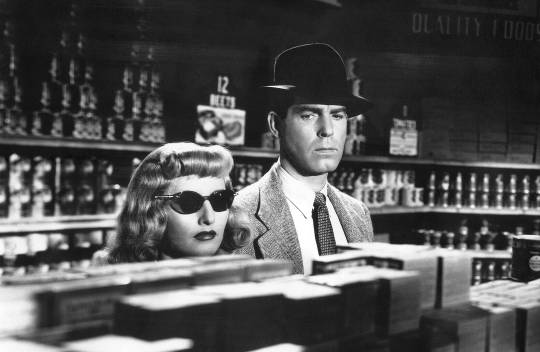
Barbara Stanwyck and Fred MacMurray in Double Indemnity (Billy Wilder, 1944)
Cast: Fred MacMurray, Barbara Stanwyck, Edward G. Robinson, Porter Hall, Jean Heather, Tom Powers, Byron Barr, Richard Gaines, Fortunio Bonanova, John Philliber. Screenplay: Billy Wilder, Raymond Chandler, based on a novel by James M. Cain. Cinematography: John F. Seitz. Production design: David S. Hall. Music: Miklós Rózsa.
Oscar-bashing is an easy game to play, but sometimes it's a necessary one. Double Indemnity was nominated for seven Academy Awards: best picture, best director (Billy Wilder), best actress (Barbara Stanwyck), best screenplay (Wilder and Raymond Chandler), best black-and-white cinematography (John F. Seitz), best scoring (Miklós Rózsa), and best sound recording. It won none of them. The most egregious losses were to the sugary Going My Way, which was named best picture; Leo McCarey won for direction, and Frank Butler and Frank Cavett won for a screenplay that seems impossibly pious and sentimental today. Almost no one watches Going My Way today, whereas Double Indemnity is on a lot of people's lists of favorite films. The reason often cited for Double Indemnity's losses is that it was produced by Paramount, which also produced Going My Way, and that the studio instructed its employees to vote for the latter film. But the Academy always felt uncomfortable with film noir, of which Double Indemnity, a film deeply cynical about human nature, is a prime example. Wilder and Chandler completely reworked James M. Cain's story in their screenplay, and while they were hardly cheerful co-workers (Wilder claimed that he based the alcoholic writer in his 1945 film The Lost Weekend on Chandler), the result was a fine blend of Wilder's bitter wit and Chandler's insight into the twisted nature of the protagonists, Phyllis Dietrichson (Stanwyck) and Walter Neff (Fred MacMurray). And as long as we're on the subject of Oscars, there are the glaring absences of MacMurray and Edward G. Robinson from the nominations -- and not only for this year: Neither actor was ever nominated by the Academy. MacMurray's departure from his usual good-guy roles to play the sleazy, murderous Neff should have been the kind of career about-face the Academy often applauds. And Robinson's dogged, dyspeptic insurance investigator, Barton Keyes, is one of the great character performances in a career notable for them. (The supporting actor Oscar that he should have won went to Barry Fitzgerald's twinkly priest in Going My Way, a part for which Fitzgerald had been, owing to a glitch in the Academy's rules, nominated in both leading and supporting actor categories.)
7 notes
·
View notes
Text
who was gonna tell me that AC4A patch the good luck was voiced by patrick seitz. who as we know is also now AC6 walter im
4 notes
·
View notes
Text
what if i like made a Christmas Carol AU but like the cast was like
Scrooge - Pulitzer
Jacob Marley - Carl Schurz
Bob Cratchit - Johnathan (92sies (i can't remember if that was his name don't get mad at me))
Tiny Tim - LITERALLY ANYONE EXCEPT CRUTCHIE 😡 (like Spot or something idk i didn't think of Tiny Tim)
Mrs. Emily Cratchit - Patricks mother for funsies
Martha Cratchit - Jack, no idea why but Jack
Fred - Walter Pulitzer
Lily (Freds wife) - WALTER WASN'T MARRIED SO WERE KEEPING HIS WIFE THE SAME IG
Fanny - Albert Pulitzer
Ghost of Christmas Past - Anthony Ittner
Ghost of Christmas Present - Seitz
Ghost of Christmas yet to come - that one is Crutchie, NOT TINY TIM 😡😡
Belle - Kathrine "Kate" Davis Pulitzer
#like wouldn't it be funny#newmsies#newsies#joeseph pulitzer#92sies#spot conlon#jack kelly#crutchie morris#newsies 1992#joseph pulitzer#joseph pulitzer newsies#a christmas carol#newsies au
3 notes
·
View notes
Text
John F. Seitz & Billy Wilder
Notes about the article 'A pair of Aces: John F. Seitz, ASC & Billy Wilder' originally published the March 2003 issue.
The article is an overview of some of the methods used by the two over the four movies they have collaborated on.
Cinematography must exist to tell the screen story, rather than to stand out as a separate artistic entity — Seitz
Symbolic compositions
Seeing their work, one element I gathered is to always pack the frame with every important information possible and have a maximum of images symbolic of the story.
One of their most famous images is the pool in 'Sunset Boulevard'. In the same frame, we can see Joe Gillis's face (the protagonist), he's drowned and the police and the press are already at the location — Symbolically, he's drowned in fame and scandal.
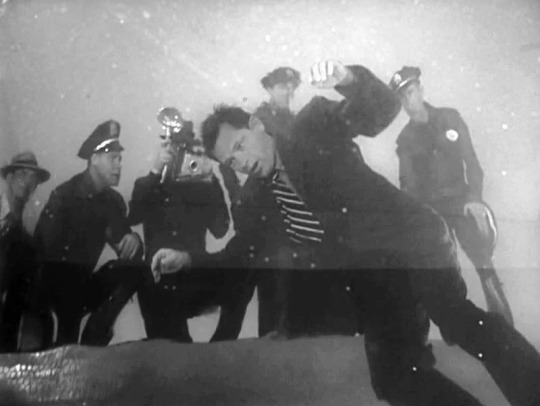
The shot was also achieved by the use of a mirror and not actually by putting the camera at the bottom of the pool — this shows that the camera doesn't have to actually be where the audience thinks it is and how a seemingly complicated shot can actually be made easier to shoot.

This shot from 'Double Indemnity' shows the whole dynamic going on visually, Walter (centre) is hiding Phylis (Left) from Keyes (On the left). Walter is at the crossroads between hiding with Phylis or coming into the light with Keyes. Dialogue, blocking and gestures guide the viewer's attention and save from using cutaways.
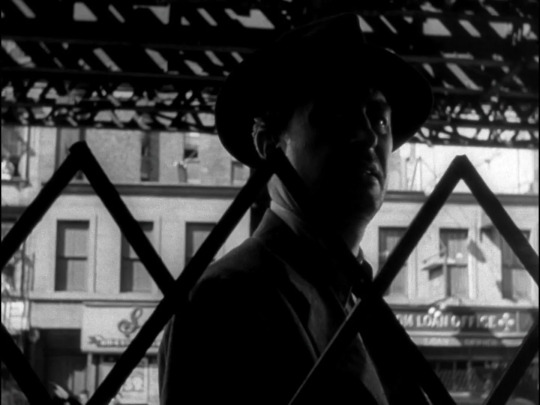
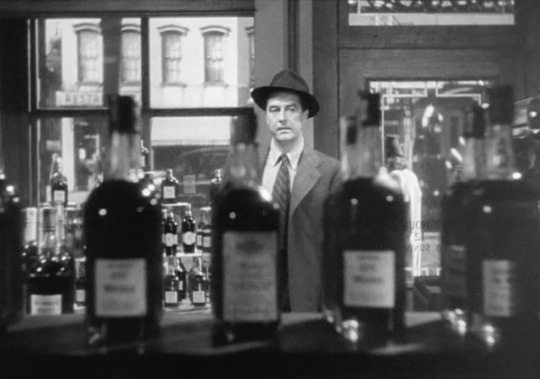
Visual interest is an opportunity for further storytelling and symbolism. In 'The Lost Weekend', places objects in the foreground such as crisscrossed bars or alcohol bottles. This visually conveys Birman's entrapment with alcohol.
Don't show what everyone already knows
Moreover, the character's state of mind is more important than action. Rather than showing the obvious, their camera highlights a character's state of mind or feeling.
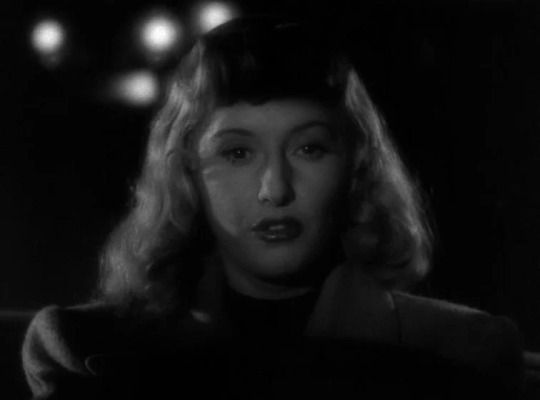
For example, the Murder of Phylis's husband happens just on the edge of the frame. As the audience knows what is gonna happen and nothing unexpected happens, the camera doesn't linger on the murder itself. Instead, it focuses on Phylis's determination, using the passing streetlights for a surreal horror effect.
Similarly, in 'Five Graves to Cairo', danger and confusion are shown in one shot during a fight between a Nazi and an English soldier: 'the camera tilts down to stare at the round lamp while the men struggle offscreen in the dark. Two gunshots produce flashes of light at the edge of the frame, and we then follow the flashlight’s beam as a hand picks the light source up and reveals the dead Nazi on the floor.'

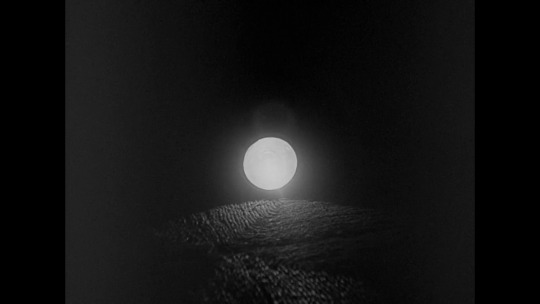
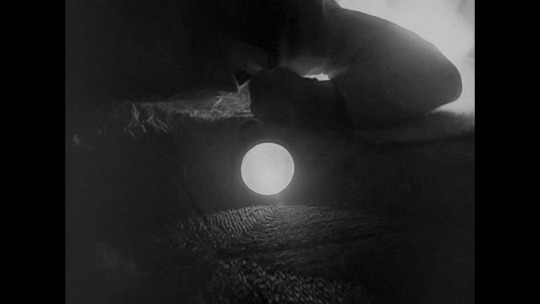
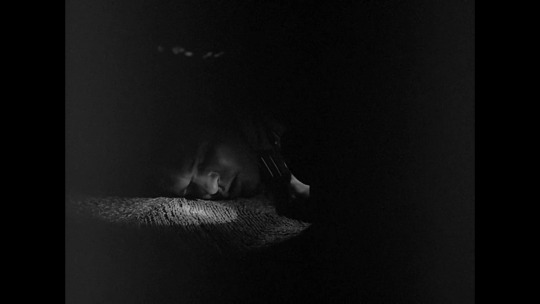
The camera doesn't showcase the choreography or specifics of the fight, just the darkness, chaos, claustrophobia and uncertainty occurring during the fight.
Textured Lighting
Another technique showcased was their lighting techniques, used to achieve a texture and rough look.
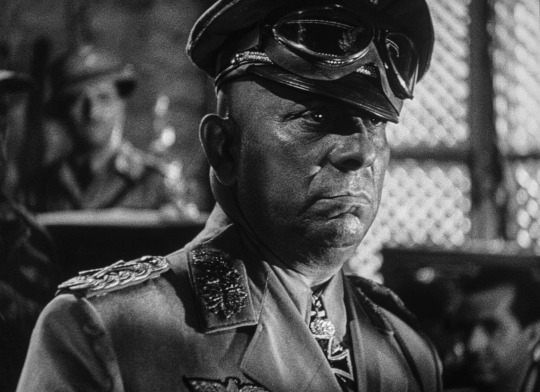
Heavy perspiration is used in 'Five Graves to Cairo' to texture the faces (this is quite reminiscent of what Sergio Leone would do later).
Lights are filtered through latticed windows, and slats in the roof to have textured shadows just about everywhere.
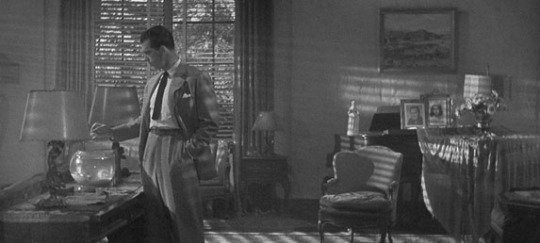
This technique is reused in double indemnity, using blinds to break up soft lights and dress the environment with shadows. The aim is to achieve a rough and dark effect.
Moreover, Seitz made a dust-blind effect with a powder of magnesium or aluminium that he blew in the air just before the camera rolled.
Wrap up
Billy Wilder was fond of using long takes (although not always noticeable to the audience) and therefore was more reliant on actors, blocking, set design and lighting to guide the viewer through the shot. This article made me understand a bit more what sort of thought process goes into designing a shot.
0 notes
Text
Kingdom Hearts IV predictions
Riley’s Mind/Mindscape (Inside Out)
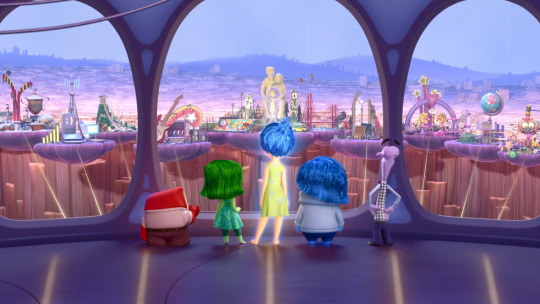
Takes place after Inside Out 2.
Is visited by Sora.
Starring the voices of:
Lori Alan as Mom’s Sadness
Carlos Alazraqui as Dad’s Fear & Helicopter Pilot
Anaiya Asomugha as Sofia
Lewis Black as Anger
Sarayu Blue as Margie
Yvette Nicole Brown as Coach Roberts
Josh Cooley as Dad’s Sadness & Jangles
Andrea Datzman as Female TripleDent Gum Singer
Ronnie del Carmen as Male Abstract Thought Worker
Emerson Cunningham as Ally
Pete Docter as Dad’s Anger
Ayo Edeberi as Envy
Adèle Exarchopoulos as Ennui
Flea as Mind Cop Jake
Ron Funches as Bloofy
Dave Goelz as Mind Cop Frank
Randy Hahn as Hockey Announcer in Dad’s Memory
Tony Hale as Fear
Paul Walter Hauser as Embarrassment
Maya Hawke as Anxiety
Kate Higgins as Joy
Melanie Injeyan as Dani
James Austin Johnston as Pouchy
J.P. Karliak as Dad’s Disgust
Elissa Knight as Female Abstract Thought Worker
Diane Lane as Jill Andersen (Mom)
Liza Lapira as Disgust
Lilimar as Valentina Ortiz
Grace Lu as Grace Hsieh
Sherry Lynn as Mom’s Joy
Kyle MacLachlan as Bill Andersen (Dad)
Mona Marshall as Mom’s Disgust & Mom’s Anxiety
Bobby Moynihan as Forgetter Bobby
Laraine Newman as Mom’s Fear
Deya Nurani as Nour (Hijab Fire Hawk)
Sumayyah Nuriddin-Green as Bree Young
Frank Oz as Mind Cop Dave
Paula Pell as Mom’s Anger & Dream Director
Nick Pitera as Male TripleDent Gum Singer
Paula Poundstone as Forgetter Paula
Steve Purcell as Deep Dark Secret
John Ratzenberger as Fritz
Kendall Coyne Schofield as Foghorn Hockey Announcer
Patrick Seitz as Dad’s Joy & Train of Thought Conductor
Phyllis Smith as Sadness
Roger Craig Smith as Dad’s Anxiety
June Squibb as Nostalgia
Kensington Tallman as Riley Andersen
Kirk Thatcher as Foreman
Paris Van Dyke as Meg
Yong Yea as Lance Slashblade
Back to index
#kingdom hearts iv#inside out#headquarters#inside out joy#inside out sadness#inside out anger#inside out fear#inside out disgust#inside out anxiety#inside out envy#inside out ennui#inside out embarrassment#riley andersen#jill andersen#bill andersen#grace hsieh#bree young#valentina ortiz#val ortiz#the firehawks#coach roberts
1 note
·
View note
Text
The humble Zealot is voiced by none other than Jamieson Price. From Coffee Dad in Persona 5 to Diethard in Code Geass to Father Nier in Gestalt, this guy really gets around. Can't believe I'd already heard his voice hundreds, if not thousands of times years before I ever watched a single episode of anime that wasn't either a kids' show selling toys or Dragon Ball(given how many competitive matches I watched, I heard the Zealot's lines alot). And while we're on Protoss voice actors who made it big in anime, Artanis is(much more obviously given his relative lack of voice-filtering compared to most other Protoss) voiced by Patrick Seitz, most famously known as Dio and Franky from One Piece and who's recently reminded everyone that he does a surprising amount of video game work with appearances as the Death Knight in the last good Fire Emblem game and Handler Walter in Armored Core VI.
Random Starcraft 2 voice actor fun facts:
Stettman is voiced by Robin from Teen Titans. Yes, the same Robin who's still being mangled by TTG. And if that wasn't enough, General Warfield is voiced by one Gary Anthony Williams, who is both the voice of Dr. Tygan from XCOM 2(there's a good bit of overlap between SC2 and XCOM2, with John De Lancie being the most notable example) and also Uncle Ruckus from Boondocks. Yes, really. I'm probably gonna have more of these, and I'll send as many as my un-adhd-medicated brain commands.
#starcraft#starcraft 2#sc2#starcraft ii#patrick seitz#you thought your Protoss hero would be Artanis#but it was I Dio!#jamieson price
22 notes
·
View notes
Photo
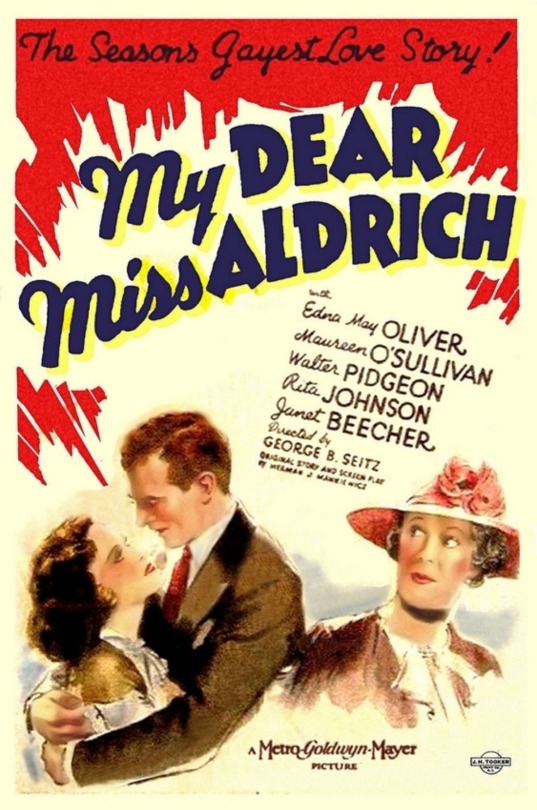


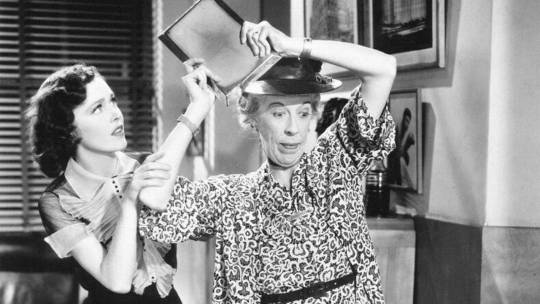
My Dear Miss Aldrich (1937) George B. Seitz
August 27th 2021
#my dear miss aldrich#1937#george b. seitz#maureen o'sullivan#edna may oliver#walter pidgeon#janet beecher#paul harvey#roger converse#charles waldron#robert greig#guinn williams#j. farrell macdonald#walter kingsford
13 notes
·
View notes
Text
My muppets’ newsies cast
My main man Kermit the Frog as Jack Kelly of course
Ms Piggy as Katherine Plumber
Crutchie played by Andrew Keenan- Bolger reprising his role
Fozzie Bear as Davey Jacobs, instead of fun facts and fancy words he makes bad jokes
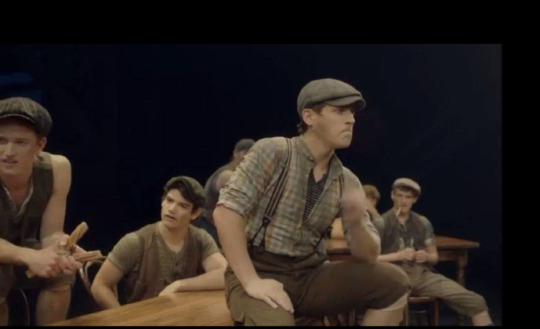
It still fits
Robin the Frog as Les, they look very similar, at least when they’re both wearing their hats (Muppet Caper)
Joseph Pulitzer played by human #2
Medda Larkin played by Camilla
Mr. Wiesel played by Sam Eagle
Oscar and Morris Delancey played by Zoot and Lips, the oft forgotten members of the Electric Mayhem
Uncle Deadly as mr. Snyder
Roosevelt played by Gonzo the Great to maintain the Camilla x Gonzo arc
Hannah played by Sweetums. He wears a dark blonde wig with no attempt to hide his existing hair
Bunsen played by dr. Bunsen Honeydew bc of course
Beaker playing Seitz
Statler and Waldorf as the Bowery Beauties. They don’t actually perform, they just heckle the show in slutty costumes
Nuns played by Janice, dr Teeth and sgt. Floyd Pepper
Now for the ensemble newsies
Pepe the King Prawn as Spot
Rizzo the Rat would embody Racetrack
Albert played by Human #3
Finch played by Lew Zealand, and instead of his slingshot he has his boomerang fish
Romeo played by Link Hogthrob for obvious reasons
The Swedish chef as Mush because of how Mush got his name y’know
Mike and Ike played by the Snowths
Animal as Smalls
Walter as Henry
Rowlf the dog as Jojo
Ps: this

60 notes
·
View notes
Text
Hellsing Commentary 10 Notes
This commentary is done by Taliesin Jaffe, the voice director and lead script adapter of Hellsing, Patrick Seitz, voice of Luke Valentine and partial script adapter of the latter episodes of Hellsing Ultimate, and Jonathan Klein, the producer for both Hellsing anime. Direct quotes may vary in accuracy, as these are written down from audio without transcripts. I also didn't write down every joke or piece of trivia because I feel like people who watch the commentaries should get to have some nice surprises for stuff that isn't covered here.
-Most of Hellsing's cast were teens or very early twenties when they started with the series. Patrick Seitz was 21 and just out of Catholic school, "And I remember thinking 'A show about vampires and they swear a lot? Gosh, this is-' I had no idea what anime was gonna have in store for me."
-Luke Valentine's original, immediate character notes for voice casting in 2001 were "Luke Valentine. Male, mid-20s, the older of the two Valentine brothers. Slightly effeminate, but serious."
-Only four people have worked on Hellsing scripts: Taliesin Jaffe, Patrick Seitz, Mike McFarland, and John Breen during the original TV series. Jonathan Klein "threw a few lines into the peanut gallery," and was responsible for the "End of the line, Alfred" from Jan Valentine in the original TV series, because he wanted Jan to call Walter "Alfred" at least once.
-Taliesin was "praying" that he could use a different VA for Girlycard, though he respects why they didn't let him. "I had a plan, I can't talk about it, but I had a plan. But, this worked better, I will admit."
-Taliesin and Jonathan occasionally talk at convention panels about how "We almost lost our jobs, uh, basically, 'cause Taliesin- and I mean, Taliesin was right to stick to his guns-"
Taliesin: "I was younger and angrier."
Jonathan: "Yes, when the Japanese told us 'No, it’s Arucard' and we said 'No, it’s not! It’s Alucard!' and they said 'No, you have to dub it as Arucard,' and we were like- Taliesin was like 'No. I'm not doing it! I'm not-' And meanwhile, like, the Geneon producers were like 'If- if you don't want to do it...we could have somebody else work on the show.'"
Taliesin: "I was- I was kinda doing the 'Fine.'"
Patrick: "His name wasn't Dracura."
Jonathan: "You know, that was the whole-! So we had- so, I'm sure we've mentioned this before, but I'll do it again- we said 'Okay, just ask Mr. Hirano, the mangaka, why he went with Arucard instead of Alucard, since it's supposed to be Dracula spelled backwards.'"
Taliesin: "He didn't write back."
Jonathan: "No no, that was the whole thing! They were afraid to ask him, because they were afraid he would be distracted from writing Hellsing. 'Cause he was still- this was early on in the series, and they didn't want- Young King Ours was like 'No no, he has to be working on Hellsing!'"
Patrick: "A question from America, this is gonna throw off his whole groove!"
Jonathan: "So I think the answer, they answered it by fax -for people who don't know what a fax machine is, different times- we got, like, a thermal fax that said: 'It’s Dracura spelled backwards.'"
Taliesin: "I believe my exact- I believe my response to that was somewhere around- (very loud frustrated yell) and then that was, uh- "
Jonathan: "Oh of course, and the irony is, the vindication was when in like, 2005, when we finally got to have dinner with Mr. Hirano at Anime Expo, and Taliesin was like, nudging me, he's elbowing me in the gut, saying 'Ask him, ask him.' And I'm like 'Okay, okay, Mr. Hirano, I'm really sorry I have to ask you this, we really are honored to have been working on your show, and that you've chosen us, again, to do the dub- why is it Arucard? And, and not Alucard?' And he said 'Oh, I'm sorry, I don't know how to spell things in English, please feel free to correct everything I made a mistake about.' and you were, like, staring at the Geneon producers-"
Taliesin: "I was trying to burn a hole through the Geneon producers."
-Patrick pulled up the Major's "I love war" speech and watched it in order to bring back the Major's muse when he was writing OVA 10.
-Taliesin has only cut one line due to being offended, that being when Mike McFarland was helping him write Jan Valentine.
-During the same dinner with Hirano, Taliesin and Jonathan asked what he wanted out of the dub, what he wanted them to do, "And he said, and I believe in English: 'Make it cool.' Like, he was like 'Cool. I want cool! I don't care how you do it, make it cool.'"
-Taliesin states "I believe in adapting for parents. I think if like, your parents or your older brother or your, your dad can come in the room and go 'What- what's this?' (with interest) then we've succeeded...and even better if they come in and their first reaction is not 'This is foreign.'"
-Jonathan agrees and says that "It just- the way it (Hellsing) plays, the way it works, is just not your typical anime. It doesn't have any of the anime archetypes in there, that you typically find in most anime." Patrick chips in with "Seras isn't running late to a meeting with like, her schoolbag and toast in her mouth."
-Taliesin states "You will see that there is a direct correlation between Seras and Alucard- their origins, and the way that they are- like, that relationship makes sense and is a big part of what this show is about, was Dracula recognizing himself in someone else, who...has a similar origin, a modern version of it, but...wasn't crushed by it. He found someone stronger than him and turned her into a vampire. And it's a really fascinating story from that direction. And there's other themes going on here, but that's a big one for me."
-Patrick and Taliesin both talk about how they'd rather have characters be "true to themselves rather than true to the material."
-There was some discussion on whether or not Walter knew that he was evil, and Taliesin thinks that he wasn't and was being "subconsciously manipulated by his younger self."
-As of the OVA 10 commentary, Taliesin had a tumblr.
-The actress that Taliesin had almost settled on for Integra before Victoria Harwood auditioned ended up playing a younger Integra for both series.
-Taliesin had to read In a Glass Darkly because of "the Carmilla episode" of the original TV series. Taliesin also mentions that he liked Incognito, who "gets a raw deal, all things considered."
-Both Taliesin and Jonathan agreed to work on Hellsing because of a short test-animation clip by the Gonzo animation studios, which included the Major slow-clapping. (Taliesin was "so upset" that he didn't appear in the series.) They emailed each other almost at the same time saying "I want this."
-According to Jonathan, the animation for the original TV series became "really, really bad" by episode four. Although he apparently can't talk about it, Jonathan says that it needed more money, but the money went to another show that was being produced at the same time, and calls it a "robbing Peter to pay Paul" sort of situation.
-Taliesin loves Seras's character arc.
-Casting Walter's two younger voices was a long and complicated process, especially trying to get them to fit together. Ralph Lister "could probably have done young, middle-aged Walter," but then Walter's child form would "hit like a ton of bricks."
-Adapting Heinkel's speech to Walter was tricky because in the original Japanese "she was almost literally saying 'die die die kill kill kill' for this whole damn exchange." They left her doing it at the end "where it's just the tantrum" instead.
-Taliesin would've loved to dub The Dawn and was sad that he didn't get to.
-During the Major's speech to Seras and Integra, Taliesin comments again that "At this point, everyone's trying to commit suicide. Like, everyone's trying to have death by gunfire...Walter is now just trying to like, end everything, the Major's trying to end everything, all the vampires inside -the Captain was trying to, like- everyone's just trying to make it end, everyone's just running into the fire."
-Patrick and Taliesin both pause to wish for Integra's VA to read the phonebook, again.
-Taliesin routinely fucks up his computer search history after about a week working on Hellsing. Patrick laughs and states "I had those moments, where I was like ‘Hi NSA, this is for work, I promise.’" Jonathan quips through his own snickers "We’re working on Hellsing! We're not really...we’re not looking to start the local chapter of the Aryanization, I promise you." Taliesin sighs and agrees ruefully: "Yeah, I occasionally feel like adding messages into my Google search engine, going: 'Just for research, I swear.'"
-During Seras's fight with the Captain, Taliesin briefly considered throwing in a reference to The Monuments Men.
-Taliesin also considered adding a line in the exchange between Walter and the Doctor about Molière, presumably in place of the "Molière? You should be so lucky" line. "I almost had baby Walter actually- I just wanted him to record 'Fuck Molière!' you know, 'Bitch!' And I was almost on the edge of 'Fuck Molière!' but its, uh..."
-Taliesin says that "The women in the Hammer Dracula films are really where Integra comes from."
-Both Patrick and Taliesin are uncertain of where the food the Major eats goes.
-Taliesin threw in a reference to Young Frankenstein in the scene between Doc and Walter, with the "dignity and grace" line.
-Taliesin calls young Walter "still posh, but slightly like- he ends up, the young version of him is not quite as polite, a little sloppy, a little mean, a little...(inhales) just a hair, like, prepubescent punk, is the push, but still from money."
-Back during the original Hellsing TV series, a "giant throne-chair" was made for promotional reasons, which Crispin signed autographs in while in costume during an event. Taliesin kept the chair and Crispin kept the costume, although at the time of commentary Taliesin is considering loaning it semi-permanently to one of two friends.
-Taliesin used to work with the actor who played young Penwood while they were both in junior high school.
-Patrick and Taliesin both compliment Makube's VA on his performance, with Taliesin saying "he's made of slime...No, he's fabulously full of shit."
-Jonathan and Taliesin toss about the theory that Heinkel became a regenerator. "Something happened to her."
-In Integra's exaggerated flashback, Penwood is wearing a Legends of the Galactic Heroes costume.
-Taliesin says that it's nice that Integra has chilled in the 30-year time gap. "Alucard has actually -and we'll get to it when he shows up- he's kind of accepted a new role, for the first time in several hundred years. He's sort of let go of a lot of his pissed-off, and is no longer here to mock god and be angry about what happened to him as a kid."
-Taliesin noticed how Alucard's red coat probably connects to the coat Van Helsing wore. Being inspired by that generation was also the reason for Alucard's American accent. "Maybe he was like, taking a cue from Quincey, was our justification."
-Jonathan asks again what the Hellsing drinking game would be, and Patrick suggests every time you see glasses before admitting that wouldn't work. Jonathan agrees and says "Nope, we'd be dead of alcohol poisoning in the first five minutes of the thing." Taliesin offers "every time I fuck up (lip-)flap" and Jonathan says they'd still be dead in the first five minutes as they all laugh.
-Taliesin was "very very pleased" with the ending to Hellsing Ultimate. Jonathan asks if he thinks Integra would take Alucard's offer to become a vampire, and both Taliesin and Patrick say yes.
-During the original TV series, Taliesin and a sound engineer were once so mad at "the Japanese for making me do- and the Geneon for making me do something I didn't want to do" that they got "rip-roaring drunk in the booth," and the engineer actually pulled a knife on the owner of the studio for "trying to fuck with the mix...He pulled out -and I won't say which engineer to protect the engineer- but he pulled out a box-cutter and was like 'If you touch my board, I will fucking cut you.' And I was clapping and like, the studio owner pulled out a baseball bat and there was like a tense confrontation. 'Cause it was like 'DO NOT TOUCH THE MIXBOARD. WE ARE BULDING A 51 MIX, YOU ASSHOLES.'"
#Hellsing#Luke Valentine#Seras Victoria#alucard (hellsing)#Walter Dornez#major montanna max#major (hellsing)
38 notes
·
View notes